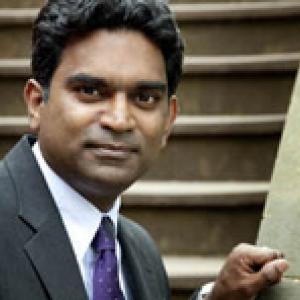New Urban Leaders for Sustainable Cities of the Future
Cities all over the world are facing a range of dynamic regional and global change pressures, such as climate change, population growth, urbanization, deterioration of urban infrastructure systems and more. Due to these pressures cities of the future will experience difficulties in efficiently managing scarcer and less reliable resources.
The current models of resource management, and their corresponding infrastructure, originated from the 19th century, when populations were relatively small, and there was a view that resources were abundant and the environment benign. Unfortunately, remnants of this 19th century model are deeply embedded in our thinking and it has been institutionalized in business, politics and education.
There is a fundamental need for change at the system-wide level in the way we manage our resources, based on a foundation of research, technology and innovation. Technology breakthroughs and innovative designs need to be coupled with comprehensive system changes to the urban processes that shape our cities. These complicated challenges calls for a new generation of urban leaders with radically different thinking, informed by an understanding of human and natural systems, to deliver a real paradigm shift in environmentally sustainable urban management.
In addition, we need to address the lack in uptake of new science. Creating the imperative for change is extremely difficult, as it requires a change in the mindset of people — governments, financiers, consulting firms and the general public. One way science educators may address this issue is though learning alliances — local multi-stakeholder platforms that guide and support the development and implementation of scientific research.
BIO:
Kalanithy Vairavamoorthy, an internationally-recognized expert on urban water issues who has worked to create clean and sustainable water and sanitation systems through programs for UNESCO and the European Union, has been selected as the Director for USF’s newly-minted School of Global Sustainability. In his 17-year career, Vairavamoorthy has led groups of researchers studying the future of sustainable water systems for cities and how urban areas might respond to water issues in the face of climate change and population growth. Since 2006, Vairavamoorthy has served as scientific director of SWITCH (Sustainable Water Management Improves Tomorrow’s Cities Health), the European Union’s Integrated Project for Sustainable Urban Water Management. The programs Vairavamoorthy has led have been rooted in "action research" that connects researchers to the communities they serve. His PhD is in Environmental and Water Resources Engineering and he has earned a MSc in Environmental Engineering, both from Imperial College, University of London. His first degree are in Civil Engineering, from King’s College, University of London. He is also a Chartered Engineer and a Fellow of the Institution of Civil Engineers (UK)

